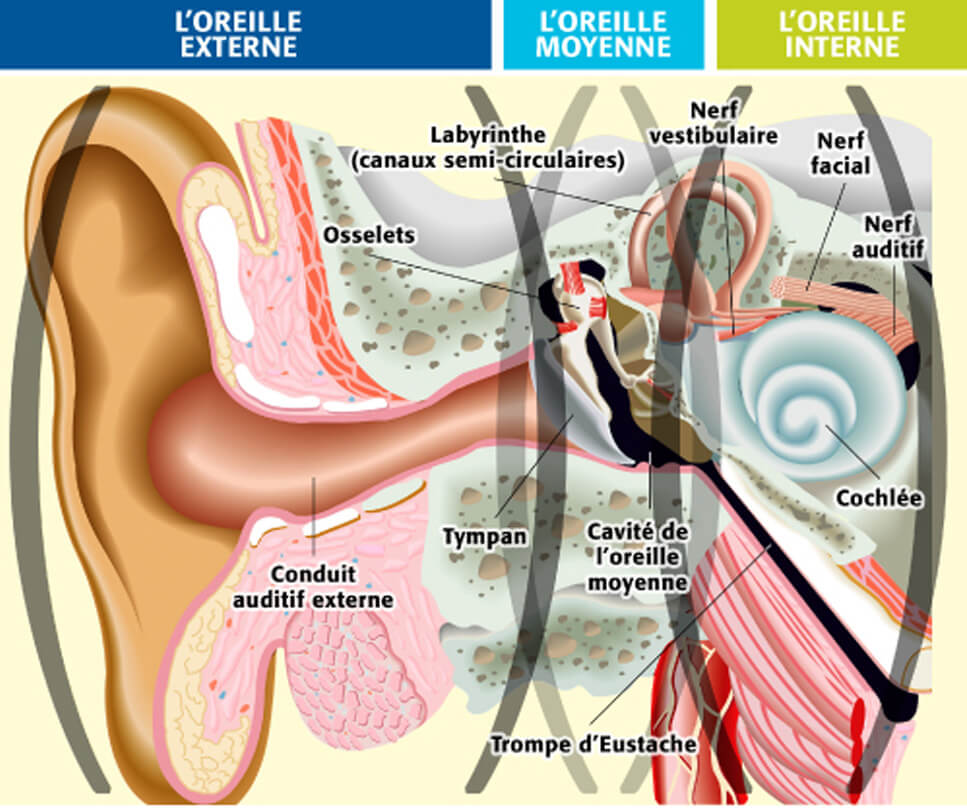
Tinnitus and Jaw Problems
Tinnitus is one of the main reasons people visit an audiologist.
 After all, approximately 15% of adults will experience it at some point in their lives. Tinnitus is a complicated symptom that has a wide variety of causes. Even though it’s heard in the ears, tinnitus can be triggered by problems in other parts of the body, such as the jaw.
After all, approximately 15% of adults will experience it at some point in their lives. Tinnitus is a complicated symptom that has a wide variety of causes. Even though it’s heard in the ears, tinnitus can be triggered by problems in other parts of the body, such as the jaw.
Tinnitus has many possible causes
Tinnitus is described as hearing a sound (either in your ears or in your head), even though it’s not actually part of your auditory environment. Its characteristics (volume, pitch, duration, etc.) can vary from person to person. Similarly, tinnitus can be caused by many different things. Deafness and exposure to loud noises are the leading causes of tinnitus. However, it can also be caused by problems that have nothing to do with the auditory system.
The leading “non-auditory” tinnitus trigger is jaw problems. In fact, they’re the third most common cause of tinnitus after deafness and noise exposure. While approximately 15% of the general population has tinnitus, up to 60% of people with jaw problems experience the syndrome.
Tinnitus and the jaw
The jaw problems behind tinnitus can either be muscle related or joint related. More specifically, the issues involve the muscles used for chewing or the temporomandibular joint (the joint that connects the jaw to the skull). The most commonly reported symptoms of jaw problems are pain in the muscles or joints, noise coming from the joints and restricted jaw movement.
Some characteristics observed in cases of tinnitus are specific to jaw-related tinnitus. First of all, tinnitus is usually heard on the same side as the affected muscle or joint. Secondly, moving the jaw often changes the sound of the tinnitus. For example, someone who experiences jaw-related tinnitus will often notice that the sound in their ears changes when they chew food.
Evaluation and treatment
Tinnitus is a complex issue, so it needs to be evaluated by qualified professionals. Audiologists have a lot of knowledge about tinnitus, so they’re well equipped to ask the right questions, perform the necessary tests and direct patients to the right resources for their specific problems, such as tinnitus appearing with jaw problems.
Like tinnitus, jaw problems must be evaluated by qualified professionals, such as dentists, in order to properly diagnose the issue and determine a cause. Some physiotherapists are also trained in this area. Depending on the cause, treatments will be suggested with the aim of reducing or even eliminating symptoms. Recent studies have found that in most cases, tinnitus was reduced following treatment for jaw problems. These interesting findings should encourage people who have both tinnitus and jaw problems to seek answers and help.
Advice
For more information, ask a hearing health professionnal practicing in a Lobe clinic by calling 1 866 411-LOBE (5623).

